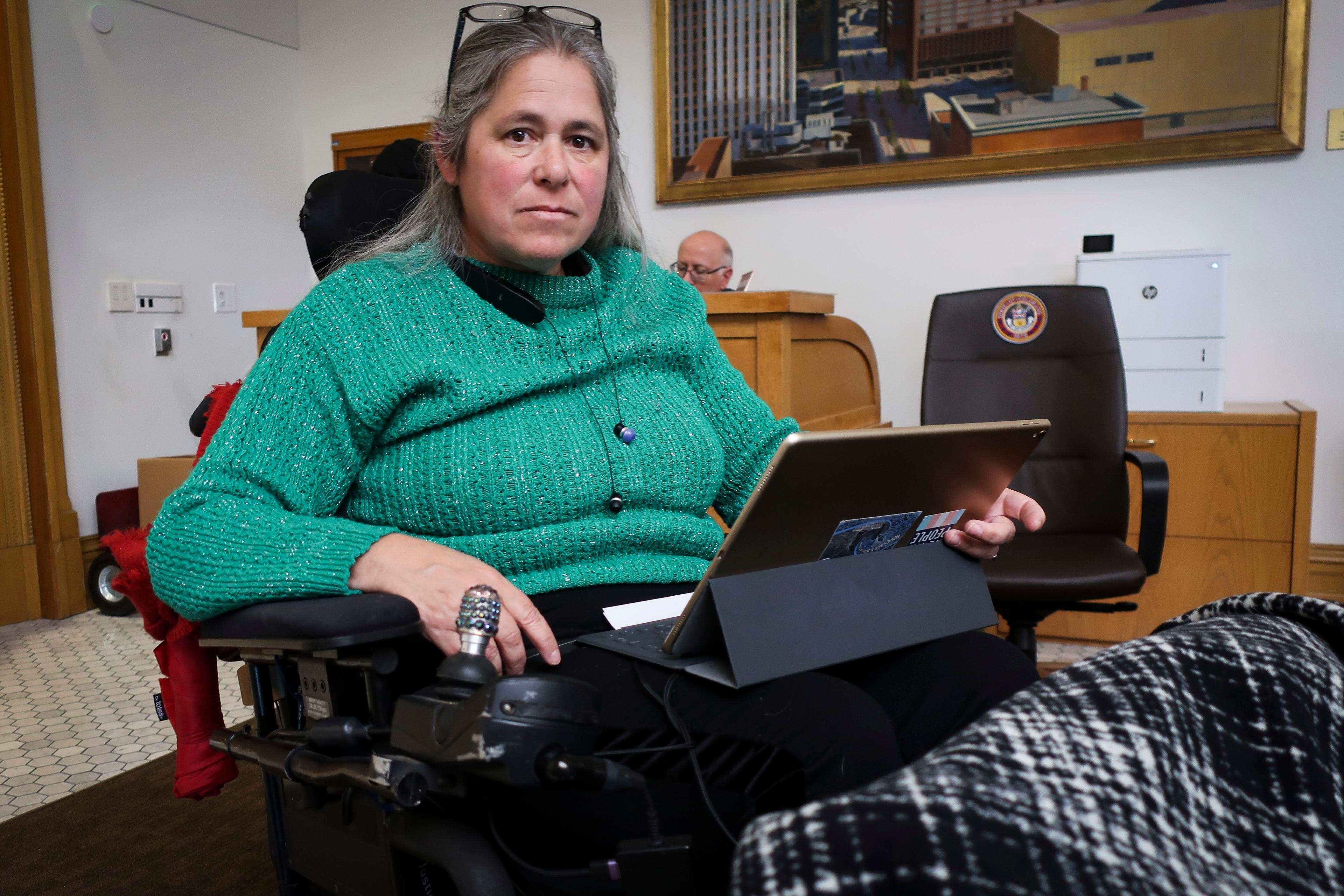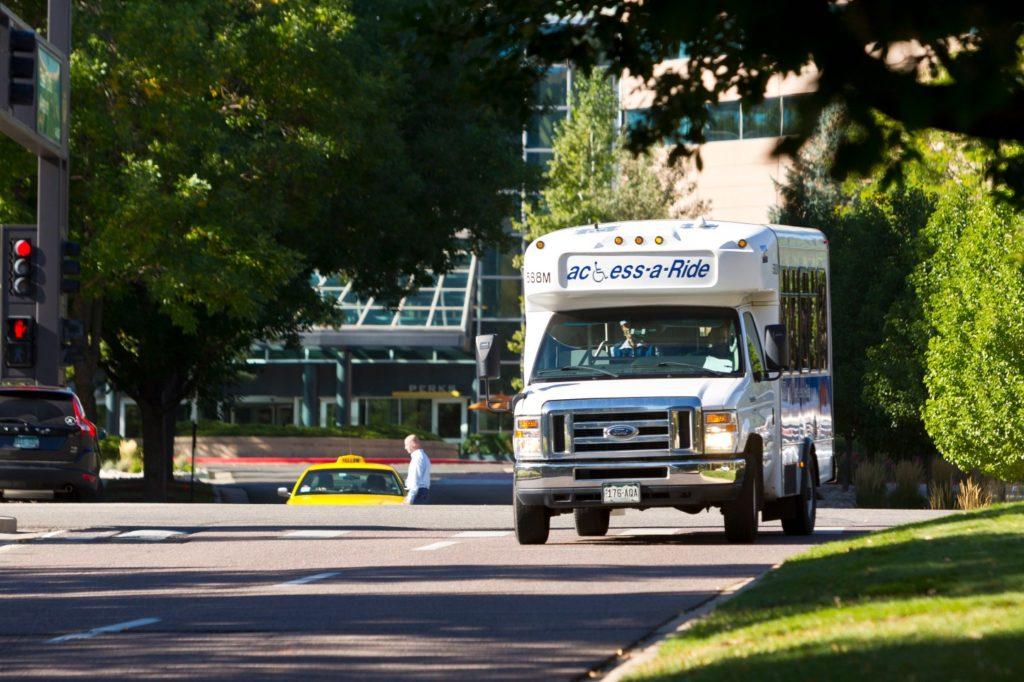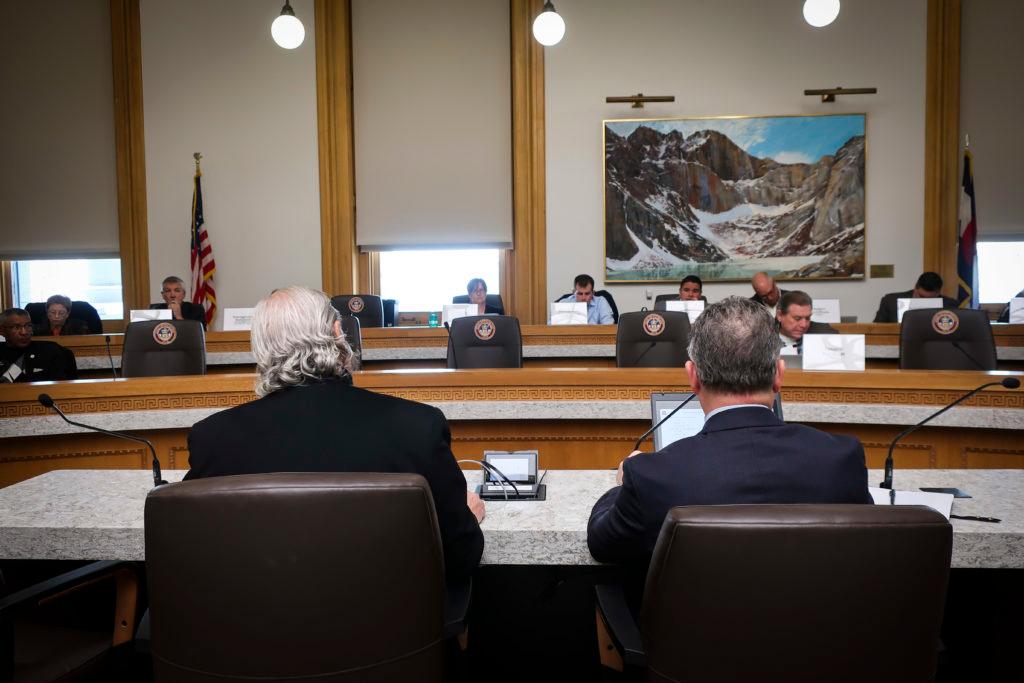
“There is nothing more important than RTD.”
That’s what Jule Reiskin, executive director of the Colorado Cross-Disability Coalition, said just a few moments after she testified before lawmakers Monday about a recent proposal from the Regional Transportation District that would significantly curtail service.
Reiskin, who uses a wheelchair, told members of the Transportation Legislative Review Committee that the spotty service on RTD’s fixed-route buses and light rail trains because of an ongoing operator shortage in recent months is nothing new to riders with disabilities.
“What we're seeing with fixed-route cancellations, we've been seeing for years with Access-A-Ride," Reiskin said, referring to RTD’s paratransit service.
Access-A-Ride provides door-to-door service for disabled patrons who can’t use RTD’s other services. And RTD has been combining trips recently because of driver shortages, Reiskin said.
"Sometimes people can be on the van for two hours for a trip that could take 45 minutes,” she said.

Earlier this month, RTD staff proposed temporary service cuts as a last-ditch way to give its overworked drivers a break. The agency is short about 160 drivers and has been forcing many of them to work six days a week for years to keep up with current service levels. That proposal is still in its early stages. The RTD board will hear a more fleshed out version of it in December.
Reiskin told lawmakers Monday that RTD should commit to not cutting Access-A-Ride at all, and should do its very best to not reduce any service.
"We think it's a really bad idea," Reiskin told CPR News. "We think that they need to work with the union on other ways to be retaining drivers."
Any sort of cut could have a ripple effect on riders with disabilities, Reiskin said, because many people who can't drive for medical reasons rely on RTD's buses and trains. And Access-A-Ride is only available to patrons who live within three-quarters of a mile of a fixed-route service line, so cuts to those could curtail the reach of the paratransit service.
“Without RTD, our ability to really reap the promises of the Americans With Disabilities Act, which turns 30 next year, is gone,” Reiskin said. “Because we can't get to work, we can't get out, we can't go spend money in the community, we can't get to medical care. Transportation is really the key to independence and full community participation.”
RTD spokeswoman Pauletta Tonilas said she couldn’t say whether driver shortages have affected Access-A-Ride, but she said the agency is very aware of the importance of that service.

"These are folks who are some of our most transit-dependent. We obviously are very careful about what we do to impact them,” she said. “However, day to day, it's tough to predict what's going to happen with any of our services."
Tonilas said Reiskin and others are welcome to give RTD their thoughts in coming weeks as the proposal takes shape.
"This is an unfortunate situation that we don't want to be in,” Tonilas said. “But we have a responsibility to look at what we can do to try to solve the situation."
RTD officials mentioned the proposal in its own presentation to the Transportation Legislation Review Committee on Monday, which drew some critical questions from lawmakers.
"It sounds to me, though, that the temporary designation is based on hope,” Democratic Rep. Matt Gray of Broomfield said.
RTD General Manager Dave Genova said RTD has some new ideas, including hiring temporary employees. Board Chair Doug Tisdale replied that the board has committed to a firm end date to the service reduction.
“We will give this a stated amount of time, and look to staff to deliver those results," Tisdale said.
Editor's note: An earlier version of this story said the RTD board would discuss the service cut proposal in November. The agency now says that will happen in December.









